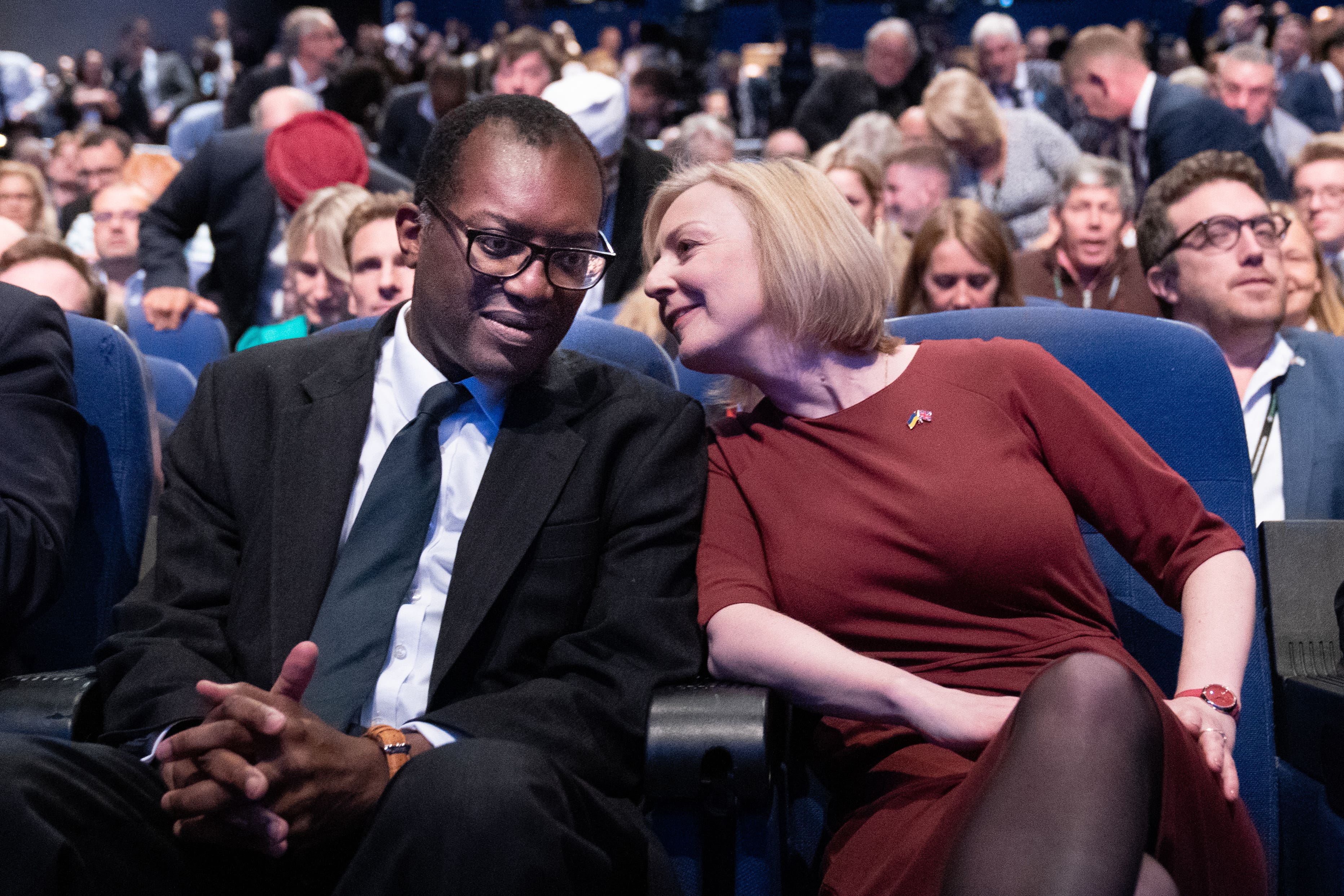Kwasi Kwarteng admits he ‘got carried away’ and Liz Truss government ‘blew it’
The former chancellor said his biggest regret was that ‘we weren’t tactically astute’

Your support helps us to tell the story
From reproductive rights to climate change to Big Tech, The Independent is on the ground when the story is developing. Whether it's investigating the financials of Elon Musk's pro-Trump PAC or producing our latest documentary, 'The A Word', which shines a light on the American women fighting for reproductive rights, we know how important it is to parse out the facts from the messaging.
At such a critical moment in US history, we need reporters on the ground. Your donation allows us to keep sending journalists to speak to both sides of the story.
The Independent is trusted by Americans across the entire political spectrum. And unlike many other quality news outlets, we choose not to lock Americans out of our reporting and analysis with paywalls. We believe quality journalism should be available to everyone, paid for by those who can afford it.
Your support makes all the difference.Kwasi Kwarteng has admitted he “got carried away” during his brief stint as chancellor.
Reflecting on Liz Truss’s disastrous seven weeks as prime minister, the chancellor she sacked after he implemented her tax-cutting agenda said her government “blew it”.
Mr Kwarteng has spoken publicly only a handful of times about his disastrous mini-Budget and ousting from government, as prime minister Rishi Sunak and chancellor Jeremy Hunt have shifted direction in a bid to reassure the financial markets.
Speaking to the Financial Times, Mr Kwarteng said: “People got carried away, myself included. There was no tactical subtlety whatsoever.
“My biggest regret is we weren’t tactically astute and we were too impatient. There was a brief moment and the people in charge, myself included, blew it.”
This is not the first time Mr Kwarteng has spoken about his experience in government.
In November, the MP for Spelthorne claimed he told Ms Truss to “slow down” her radical economic reforms or risk being out of No 10 within “two months”.
His latest intervention came after Mr Hunt unveiled his so-called “Edinburgh reforms” – 30 changes to “turbocharge” growth, including by easing capital requirements for smaller lenders.
Mr Kwarteng had hoped as chancellor to oversee a “Big Bang 2.0” – a reference to Margaret Thatcher’s 1986 policies, which kicked off a massive change in the City of London.
My biggest regret is we weren’t tactically astute and we were too impatient. There was a brief moment and the people in charge, myself included, blew it
The MP, now on the backbenches, criticised Ms Truss’s “mad” decision to sack him as chancellor for implementing her plans, while refusing to apologise for the financial turmoil unleashed by their disastrous mini-Budget.
Using more than £70bn of increased borrowing, he set out a package that included abolishing the top rate of income tax for the highest earners and axing the cap on bankers’ bonuses, on top of a massively expensive energy support package.
The mini-Budget triggered turbulence in the financial markets, sending the pound tumbling, forcing the Bank of England’s intervention and pushing up mortgage rates.
Two days later, he signalled more tax cuts were on the way, spooking markets further.
Mr Kwarteng’s latest comments came after Ms Truss’s former chief speech writer said she took a “Spinal Tap approach” to government, demanding the volume was “turned up to 11”.
Asa Bennett said the former prime minister had arrived in Downing Street determined to put “rocket boosters” under the economy and that it was a matter of “bitter regret” that her efforts had failed.
Ms Truss’s short-lived premiership ended in humiliation after her mini-Budget led to chaos on financial markets, forcing the Bank of England to take emergency action to prevent pension funds collapsing.
Ms Truss resigned after only 44 days in office, with her economic measures swiftly ripped up by new chancellor Jeremy Hunt and her successor in No 10, Rishi Sunak.


